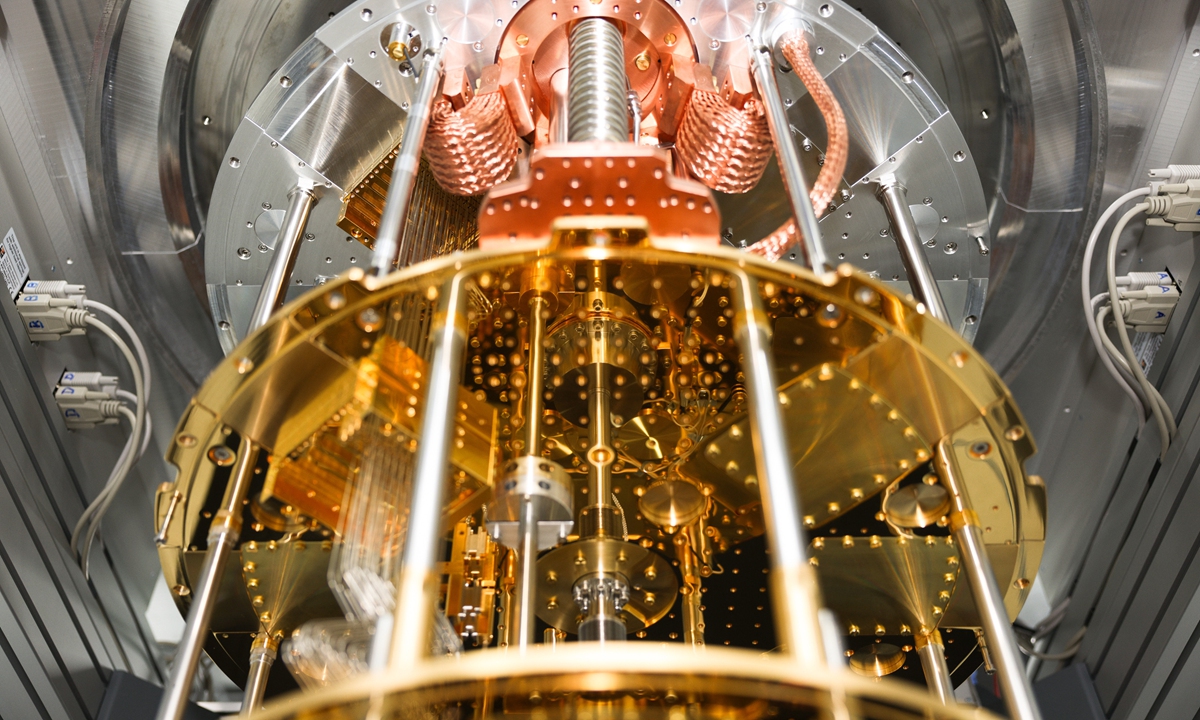
Photo: Courtesy of Baidu
Baidu, an AI company with strong Internet foundation, Thursday announced its first superconducting quantum computer that fully integrates hardware, software, and applications, marking a new milestone in the long-awaited industrialization of quantum computing.
On top of this, the company also introduced the world's first all-platform quantum hardware-software integration solution that provides access to various quantum chips via mobile app, PC and cloud.
A revolutionary technology that harnesses the laws of quantum mechanics to solve problems beyond the reach of classical computers, quantum computing is expected to bring ground-breaking transformations in fields like artificial intelligence (AI), computational biology, material simulation, and financial technology.
Countries and major high-tech companies around the world are closely deploying quantum technology, such as the EU and the US which have mapped out the technology for years. Companies including Google, IBM, and Microsoft are accelerating the development and deployment of quantum computing platforms. Domestic companies such as Baidu, Alibaba, Tencent, and Huawei have all made investments in quantum computing.
"Qian Shi", Baidu's industry-level superconducting quantum computer incorporates its hardware platform with its home-grown software stack. On top of this infrastructure are numerous practical quantum applications, such as quantum algorithms used to design new materials for novel lithium batteries or simulate protein folding.
As quantum computing continues to record remarkable progress, a large number of enterprises are exploring how quantum computing will contribute to their real-world businesses.
This has led to the development of "Liang Xi", the world's first all-platform quantum hardware-software integration solution that offers versatile quantum services through private deployment, cloud services, and hardware access, according to the company.
Baidu said Liang Xi is able to plug into Qian Shi and other third-party quantum computers, including a 10-qubit superconducting quantum device and a trapped ion quantum device developed by the Chinese Academy of Sciences. Users can conveniently visit these quantum computational resources via mobile app, PC and cloud.
Duan Runyao, director of the Institute for Quantum Computing at Baidu Research said Baidu's platform is also instantly compatible with a wide range of quantum chips, meaning 'plug-and-play' access is now a reality."
Pan Jianwei, a quantum physicist and executive vice-president of the University of Science and Technology of China said on Thursday that quantum computing is still a long way from being practical and industrialized. During this process, the active participation and close cooperation of all aspects of government, industry, academia and research are required.
A Chinese micro-nano quantum satellite has entered its planned orbit and is now operational, the University of Science and Technology of China (USTC), one of its developers, told Xinhua New Agency in July.
The low-orbit satellite was designed to conduct real-time quantum key distribution experiments between the satellite and ground stations, and to carry out technical verification.
Global Times




